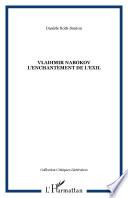
Vladimir Nabokov l'enchantement de l'exil
Autor: Danièle Roth-souton
Número de Páginas: 257L'auteure nous propose ici une critique de l'oeuvre de Vladimir Nabokov. Elle évoque l'exil qui a marqué la vie de l'écrivain et son oeuvre.

L'auteure nous propose ici une critique de l'oeuvre de Vladimir Nabokov. Elle évoque l'exil qui a marqué la vie de l'écrivain et son oeuvre.

Lorsqu'en mai 1940, à Saint-Nazaire, Nabokov, échappant à l'occupation de la France, s'embarque pour New York, c'est un écrivain russe accompli, considéré comme le plus grand espoir de sa génération. Vingt ans plus tard on saluera en lui le plus grand écrivain américain vivant. Cette étonnante métamorphose commence à l'université de Stanford, où il est nommé professeur associé, avant d'enseigner le russe et la littérature à Wellesley College et à l'université de Cornell. Sa passion pour les papillons - il en découvrira deux espèces, dont l'une portera son nom - lui vaut aussi un poste d'entomologiste au Musée de zoologie comparée de Harvard. Mais, entre-temps, il s'est fait connaître en collaborant aux meilleures revues américaines, le New Yorker en particulier, et en publiant des souvenirs, Speak Memory (Autres rivages). Le grand public le découvre en 1957 avec Pnine, un conte gogolien tendre et comique. L'année suivante, sa notoriété devient mondiale avec Lolita, qui provoque un scandale et se vendra, en vingt ans, à quatorze millions d'exemplaires. Cet immense succès permet à Nabokov de quitter l'enseignement. Il se retire à Montreux, en...
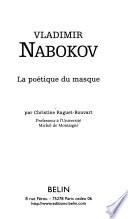
Quand Nabokov devint célèbre avec "Lolita", il avait déjà 50 ans et derrière lui toute une oeuvre composée au long de ses exils : romans, nouvelles, poèmes, pièces, traductions et essais, en russe et en anglais. Son écriture subversive est aussi provocante par son style que par ses thèmes.
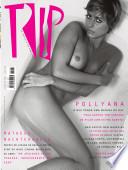
Revista Trip. Um olhar criativo para a diversidade, em reportagens de comportamento, esportes de prancha, cultura pop, viagens, além dos ensaios de Trip Girl e grandes entrevistas
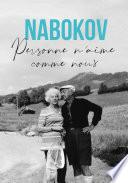
« Mon amour pourrait emplir dix siècles de feu, de chants et d’exploits – dix siècles entiers, immenses et aériens, pleins de chevaliers gravissant des montagnes ardentes, de géants légendaires, de Troie en fureur, de voiles orange, de pirates et de poètes. » Dans les plus belles lettres à sa femme Véra, Vladimir Nabokov se révèle en amoureux adorateur et indéfectible, inventeur de génie des mots doux les plus fous, en filigrane de sa trajectoire d’écrivain. Traduit du russe et de l’anglais par Laure Troubetzkoy

Le chef du département de littérature anglaise de l'Université d'Auckland a consacré dix ans à écrire cette imposante et minutieuse biographie avec l'aide et "l'imprimatur des héritiers" de Nabokov. L'oeuvre (en deux volumes) complète, prolonge et contredit parfois les écrits autobiographiques du modèle: cf. ##Autres rivages## (Gallimard, 1961). Selon F. Bordeleau cette "biographie intellectuelle" propose à la fois une remarquable analyse de l'oeuvre et une "peut-être outrancière tentative de réhabilitation de l'homme".
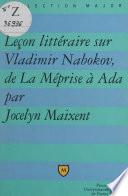
Pour Vladimir Nabokov, « toute œuvre d’art est d’abord création d’un monde nouveau ». En forçant les portes de La Méprise ou de Ada ou l’ardeur, le lecteur pénètre sur un territoire de l’inédit qui ne cesse, à chaque page, chaque mot, chaque image, de le surprendre. Trop habitué à une littérature-reflet du réel, il s’étonne des invraisemblances, des écarts du récit par rapport à la norme et à la raison. Comment croire à cet univers de doubles et de faux-semblants, de pantins manipulés par un marionnettiste inspiré ? L’espace nabokovien est celui du jeu intellectuel et du labyrinthe ; il place le lecteur face à un choix délicat : abdiquer ou combattre. S’il choisit la lutte, le lecteur sera contraint par l’auteur tout-puissant d’adopter un regard neuf sur la fiction. C’est l’évolution de ce regard qu’il s’agit de décrire ici : en prenant pour base un récit de jeunesse (La Méprise) et un chef-d’œuvre (Ada), cet ouvrage tente de découvrir comment Nabokov apprivoise et éduque son lecteur pour l’initier à son univers romanesque hors du commun.
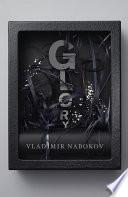
Glory is the wryly ironic story of Martin Edelweiss, a twenty-two-year-old Russian émigré of no account, who is in love with a girl who refuses to marry him. Convinced that his life is about to be wasted and hoping to impress his love, he embarks on a "perilous, daredevil project"--an illegal attempt to re-enter the Soviet Union, from which he and his mother had fled in 1919. He succeeds--but at a terrible cost.
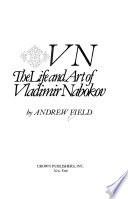
Leven en werk van de Amerikaanse schrijver van Russische origine Vladimir Vladimirovič Nabokov (1899-1977).
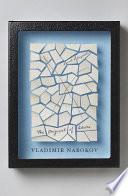
"Nabokov's last metafictive parable. . . . One of the most interesting short stories Nabokov never wrote." —San Francisco Chronicle When Vladimir Nabokov died in 1977, he left instructions for his heirs to burn the 138 hand-written index cards that made up the rough draft of his final and unfinished novel, The Original of Laura. But Nabokov's wife, Vera, could not bear to destroy her husband's last work, and when she died, the fate of the manuscript fell to her son. Dmitri Nabokov’s decision finally to allow publication of the fragmented narrative—dark yet playful, preoccupied with mortality—affords us one last experience of Nabokov's magnificent creativity, the quintessence of his unparalleled body of work. “Bits and pieces of Laura will beckon and beguile Nabokov fans, who will find many of the author’s perennial themes and obsessions percolating through the story of Philip.... In these pages readers will find bright flashes of Nabokovian wordplay and surreal, Magritte-like descriptions." —The New York Times "A unique chance to see the master out of control. . . . It's like seeing an unfinished Michelangelo sculpture--one of those rough, half-formed giants...
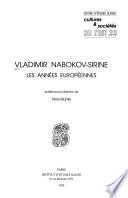
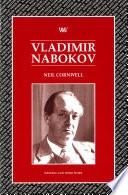
Vladimir Nabokov's extraordinary literary career, as a master of Russian and English prose, is unique. Acclaimed in the limited Russian émigré world, under the name of Sirin, Nabokov switched to writing in English and settled in America, a refugee from Hitler's Europe. Exile, memory, lost love and the magic of childhood are among his themes; stylistic and structural dexterity are his hallmarks; Lolita (ranked number 4 in the 1998 New York Modern Library list of 100 best novels of the century published in English) enabled him to retire to a final and productive period of European residence. Film versions of his most controversial novel keep Nabokov's name before the public, while almost his entire oeuvre remains currently available in paperback. Neil Cornwell's study, published for the Nabokov centenary, examines five of Nabokov's major novels, plus his short stories and critical writings, situating his work against the ever-expanding mass of VN scholarship, and noting his cultural debt to Russia, Europe, America and the British Isles.
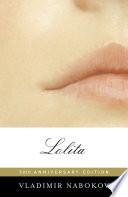
The most famous and controversial novel from one of the greatest writers of the twentieth century tells the story of Humbert Humbert’s obsessive, devouring, and doomed passion for the nymphet Dolores Haze. "The conjunction of a sense of humor with a sense of horror [results in] satire of a very special kind." —The New Yorker Awe and exhilaration—along with heartbreak and mordant wit—abound in Lolita, which tells the story of the aging Humbert Humbert's obsession for the nymphet Dolores Haze. Lolita is also the story of a hypercivilized European colliding with the cheerful barbarism of postwar America. Most of all, it is a meditation on love—love as outrage and hallucination, madness and transformation.
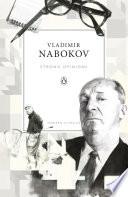
Nabokov begins his Strong Opinions: 'I think like a genius, I write like a distinguished author, and I speak like a child.' In the interviews collected here - covering everything from his own burgeoning literary celebrity to Kubrick's Lolita to lepidoptery - he is never casual or off-guard. Instead he insisted on receiving questions in advance and always carefully composed his responses. Keen to dismiss those who fail to understand his work and happy to butcher those sacred cows of the literary canon he dislikes, Nabokov is much too entertaining to be infuriating, and these interviews, letters and articles are as engaging, challenging and caustic as anything he ever wrote. Part of a major new series of the works of Vladimir Nabokov, author of Lolita and Pale Fire, in Penguin Classics.
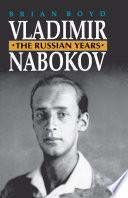
This first major critical biography of Vladimir Nabokov, one of the greatest of twentieth-century writers, finally allows us full access to the dramatic details of his life and the depths of his art. An intensely private man, Nabokov was uprooted first by the Russian Revolution and then by World War II. Transformed into a permanent wanderer, he did not achieve fame until late in life, with the success of Lolita. In this first of two volumes, Brian Boyd vividly describes the liberal milieu of the aristocratic Nabokovs, their escape from Russia, Nabokov's education at Cambridge, and the murder of his father in Berlin. Boyd then turns to the years that Nabokov spent, impoverished, in Germany and France, until the coming of Hitler forced him to flee, with wife and son, to the United States. This volume stands on its own as a fascinating exploration of Nabokov's Russian years and Russian worlds, prerevolutionary and émigré. In the course of his ten years' work on the biography, Boyd traveled along Nabokov's trail everywhere from Yalta to Palo Alto. The only scholar to have had free access to the Nabokov archives in Montreux and the Library of Congress, he also interviewed at length...
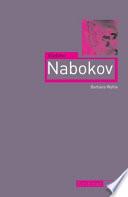
Best known for his deeply controversial 1955 novel, Lolita, Vladimir Nabokov (1899-1977) is celebrated as one of the most distinctive literary stylists of the twentieth century. In Vladimir Nabokov, Barbara Wyllie presents a comprehensive account of the life and works of the writer, from his childhood and earliest stories in pre-revolutionary Russia, to The Original of Laura—a novel written almost entirely on index cards published for the first time in 2009, perhaps against Nabokov’s wishes. This literary biography investigates the author’s poetry and prose, in both Russian and English, and examines the relationship between Nabokov’s extraordinary erudition and the themes that recur throughout his works. His expertise as a specialist in butterflies complemented his wide knowledge of Russian and Western European culture, philosophy, and history, and informed the themes of transformation and transcendence that dominate his work. Wyllie traces his lifelong preoccupations with time, memory, and mortality across both his Russian and English works, and she illuminates his distinctive through detailed analysis of his major novels. Wyllie assesses his poetry and prose style...

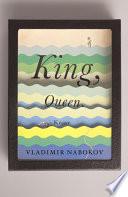
The novel is the story of Dreyer, a wealthy and boisterous proprietor of a men's clothing emporium store. Ruddy, self-satisfied, and thoroughly masculine, he is perfectly repugnant to his exquisite but cold middle-class wife Martha. Attracted to his money but repelled by his oblivious passion, she longs for their nephew instead, the myopic Franz. Newly arrived in Berlin, Franz soon repays his uncle's condescension in his aunt's bed.

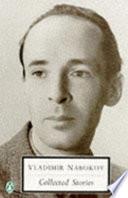
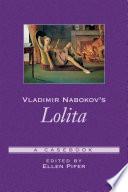
Midway through the last century, Lolita burst on the literary scene--a Russian exile's extraordinary gift to American letters and the New World. The scandal provoked by the novel's subject--the sexual passion of a middle-aged European for a twelve-year-old American girl--was quickly upstaged by the critical attention it received from readers, scholars, and critics around the world. This casebook gathers together an interview with Nabokov as well as nine critical essays about Lolita. The essays follow a progression focusing first on textual and thematic features and then proceeding to broader topics and cultural implications, including the novel's relations to other works of literature and art and the movies adapted from it.
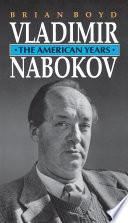
The story of Nabokov's life continues with his arrival in the United States in 1940. He found that supporting himself and his family was not easy--until the astonishing success of Lolita catapulted him to world fame and financial security.
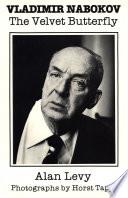
The Velvet Butterfly is the third in a series of introductions to some of our major literary figures by the noted cultural journalist and foreign correspondent Alan Levy.
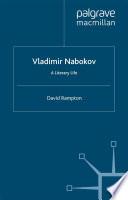
A clearly written, insightful study of Nabokov the novelist, providing an expert analysis of the 17 novels he wrote during a career spanning more than 50 years: one of the most impressive, challenging, and controversial literary achievements of our time.
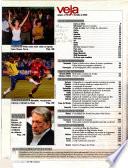
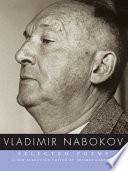
Though we know Vladimir Nabokov as a brilliant novelist, his first love was poetry. This landmark collection brings together the best of his verse, including many pieces that have never before appeared in English. These poems span the whole of Nabokov’s career, from the newly discovered “Music,” written in 1914, to the short, playful “To Véra,” composed in 1974. Many are newly translated by Dmitri Nabokov, including The University Poem, a sparkling novel in verse modeled on Pushkin’s Eugene Onegin that constitutes a significant new addition to Nabokov’s oeuvre. Included too are such poems as “Lilith”, an early work which broaches the taboo theme revisited nearly forty years later in Lolita, and “An Evening of Russian Poetry”, a masterpiece in which Nabokov movingly mourns his lost language in the guise of a versified lecture on Russian delivered to college girls. The subjects range from the Russian Revolution to the American refrigerator, taking in on the way motel rooms, butterflies, ice-skating, love, desire, exile, loneliness, language, and poetry itself; and the poet whirls swiftly between the brilliantly painted facets of his genius, wearing masks that...


Vladimir Nabokov et sa femme Véra se sont rencontrés en 1923, à Berlin, où leurs familles avaient fui le pouvoir bolchevique. Tout au long du demi-siècle que dure leur mariage, ils ne sont séparés que rarement, mais il lui écrit alors tous les jours et abondamment. Dans cette correspondance à sens unique — Véra ayant détruit ses propres lettres—, on lit la passion de Nabokov pour sa femme, son quotidien dans le milieu de l'émigration russe à Berlin, les bouleversements auxquels tous deux sont confrontés dans leur vie matérielle et affective, le dénuement qui est le sien lors de ses débuts à Paris, l'intérêt croissant éveillé par son oeuvre auprès des éditeurs et d'un public éclairé, le soutien indéfectible que lui apporte Véra. Ces lettres, outre ce qu'elles révèlent sur l'homme, nous font découvrir le laboratoire de l'écrivain et l'on y reconnaît l'originalité de son style : sa veine parodique, poétique, sa vivacité et ses jeux de mots. Par-delà le seul intérêt biographique, une jubilation de l'écriture, une fantaisie enflammée et le fantôme désirable de la femme qui inspira ces mots.


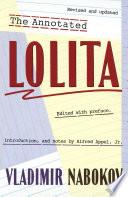
Nabokov's wise, ironic, and elegant masterpiece. • A controversial love story almost shocking in its beauty and tenderness. • This annotated edition assiduously illuminates the extravagant wordplay and the frequent literary allusions, parodies, and cross-references. • Edited with a preface, introduction, and notes by Alfred Appel, Jr. "Fascinatingly detailed." -Edmund Morris, The New York Times Book Review When it was published in 1955, Lolita immediately became a cause célèbre because of the freedom and sophistication with which it handled the unusual erotic predilections of its protagonist. Awe and exhilaration–along with heartbreak and mordant wit–abound in this account of the aging Humbert Humbert's obsessive, devouring, and doomed passion for the nymphet Dolores Haze. Lolita is also the story of a hypercivilized European colliding with the cheerful barbarism of postwar America, but most of all, it is a meditation on love–love as outrage and hallucination, madness and transformation.
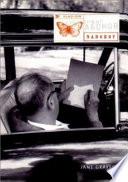
History seemed to pursue Vladimir Nabokov. In the Russian Revolution and the Second World War he lost his homeland, social position and family, and was even forced to abandon working in his native language. Despite the shadow of exile, Nabokov's work exudes a tremendous vivacity and joy. Even at its darkest it has an inventiveness and a richness of perception that has rarely been surpassed. The photographs and illustrations in this volume, many previously unpublished, range from early photographs of the Nabokovs' estates in Russia to hand-corrected manuscript pages, first edition book jackets, and examples of Nabokov's lifelong passion for butterflies. Acclaimed scholar Jane Grayson provides fresh insight into the celebrated author's life, making this volume a unique glimpse into the life of the modernist master.
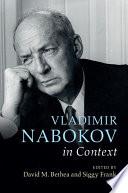
Vladimir Nabokov, bilingual writer of dazzling masterpieces, is a phenomenon that both resists and requires contextualization. This book challenges the myth of Nabokov as a sole genius who worked in isolation from his surroundings, as it seeks to anchor his work firmly within the historical, cultural, intellectual and political contexts of the turbulent twentieth century. Vladimir Nabokov in Context maps the ever-changing sites, people, cultures and ideologies of his itinerant life which shaped the production and reception of his work. Concise and lively essays by leading scholars reveal a complex relationship of mutual influence between Nabokov's work and his environment. Appealing to a wide community of literary scholars this timely companion to Nabokov's writing offers new insights and approaches to one of the most important, and yet most elusive writers of modern literature.
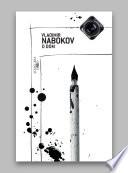
Em O dom, um dos maiores escritores de todos os tempos cria um minucioso mosaico que mescla vida e literatura. Este é um livro sobre memória, amor e literatura. Considerado por Vladimir Nabokov sua melhor obra escrita em russo — ele mesmo revisaria sua tradução para o inglês, décadas depois —, O dom condensa, com extrema virtuose estilística, o melhor de sua produção no período. Ele capta, com riqueza de detalhes, a difícil vida dos emigrados no país que lhes é hostil. Com ironia, reconstrói os círculos literários da época, onde todos, por menor que fosse o grupo de escritores, se tratavam com gentileza para depois se criticarem mutuamente pelas costas. Sem dinheiro, com aspirações a se tornar um grande escritor, o poeta iniciante e sonhador Fyodor navega por esse mundo vago e sombrio. Enquanto sonha com versos, com sua juventude perdida e com o pai, desaparecido anos antes, ele nos conta duas histórias de amor. Por Zina, a filha do senhorio que aluga um quarto para ele, e pela própria literatura russa, que permeia todo este grandioso romance.
Ver Opções